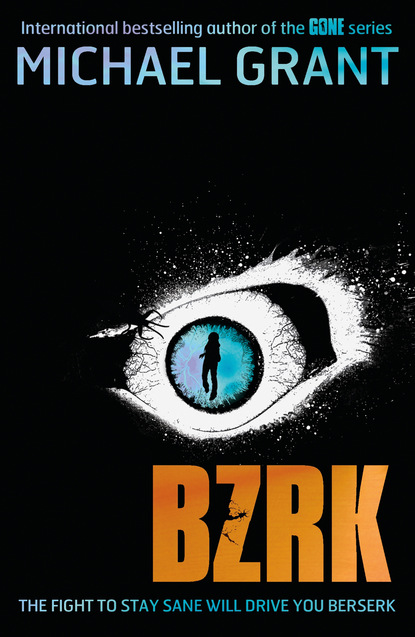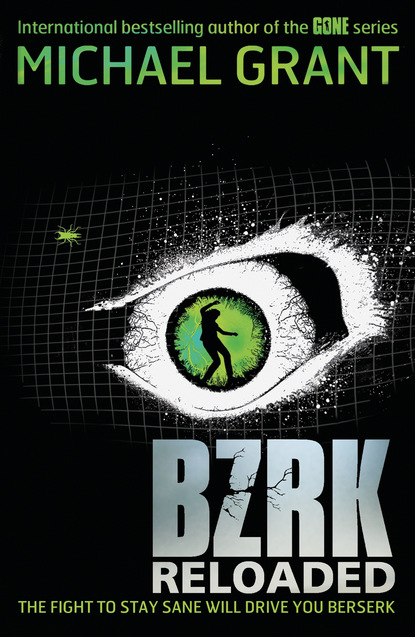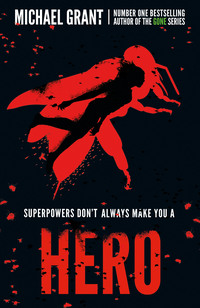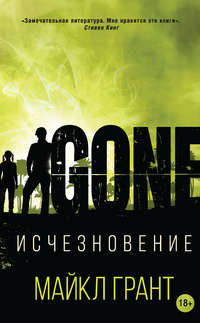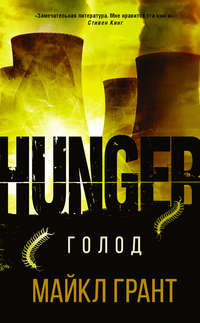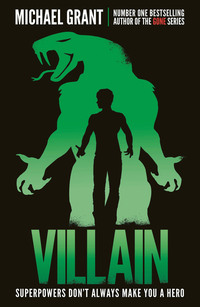
Полная версия
Bzrk Apocalypse
In the matter of safe houses things had improved quite a bit. Plath had access to most of her own money now, and she had Mr Stern and the McLure security apparatus to arrange things. So BZRK New York was quite nicely established in a five-story townhouse not far from Columbus Circle on the Upper West Side.
They had obtained it through numerous cut-outs and guys-who-knew-a-guy, and bought it for cash for nine million dollars.
Just twelve blocks away was a second safe house. This had also been purchased for cash, but this time the cut-outs had been just a bit less well-managed. Not so poorly managed as to seem obvious; just a few scant clues left here and there for those who were watching the movements of Plath’s money.
The fake safe house was above a bankrupt dry cleaner. A sound system played ambient noise from within—TV, music, the sound of laughter, occasional yelling. A timer turned the lights on and off. And random people delivering handbills were hired to enter and leave the place at odd times of day and night. It wouldn’t stand up to in-depth surveillance but it would do as a diversion. It was already, according to Stern, drawing the attention of Hannah Thrum, the chairwoman of McLure Holdings, the parent company of McLure Labs. Thrum was almost certainly working for the Armstrong Twins as well, but that was all right, so long as Plath knew where all the players were.
Let Thrum follow the money. She was a numbers person. Numbers people loved to believe they saw deeper than anyone else, believing their numbers were truth. In reality, Thrum was chasing numbers like a kitten chasing a piece of string.
Plath, Keats and Billy carried their sandwiches back to the parlor where Nijinsky, Vincent and Wilkes waited. Anya sat beside Vincent on the couch. Plath stood leaning back against a walnut Restoration Hardware china cabinet, bit into the sandwich and looked over her sparse troops.
Nijinsky was a bit less elegant and well-turned-out than he’d been just a few weeks ago.
Wilkes had shaved half her head and dyed the other side a sickly yellow that was only vaguely related to blonde. Wilkes—named for Annie Wilkes, the insane fan in Stephen King’s Misery—was a tough chick: a pierced, tattooed (including a sort of downswept flame tat under one eye), leather-and-lace teenager whose personal history strongly suggested that people not mess with her. There was a fire-damaged school in Maryland that stood witness to what happened when Wilkes lost it.
Billy the Kid: a scrawny mixed-race kid who had shot his way out of an Armstrong attack on the Washington cell of BZRK. Shot his way out, and then shot his way back in to finish off any Armstrong survivors.
Keats. The working-class London boy with impressive gaming skills and too-blue eyes. And a very nice, taut body, not that Plath should have been thinking about that at the moment. But she was; in fact she was recalling a specific moment on the island, standing at the railing of their deck, watching the sun come up, Noah as he was then, behind her, his strong arm around her waist, drawing his forearm over her body, over her breasts, kissing the nape of her neck.
She took a breath. It was deeper and noisier than she’d intended and she wondered if people guessed that she’d been daydreaming.
Finally, of course, there was Vincent himself. Vincent had brought Sadie into BZRK. He had basically created Plath. He’d been their fearless leader until he had lost a biot in a battle with Bug Man. To lose a biot was to lose your mind.
The biot–human link was still not understood. The mechanism that allowed the human “parent” to see through biot eyes, move biot limbs, and to be so intimately connected with them that losing a biot was like some kind of psychic lobotomy—that mechanism, that force, was not understood. In fact, it had been a complete surprise when first discovered at McLure Labs by Plath’s father, Grey McLure, and had remained a mystery to him to the day he had been murdered in spectacular fashion.
The effects of the brain–biot connection were plain to see. Vincent, who had once been so dead calm, so in control, had fallen into madness. And the only way to save him had been with crude intervention down in the folds of his brain.
Plath herself had done the job. She had delivered acid to sites in Vincent’s brain that stored specific memories of his dead biot. She had watched through her own biot eyes as Vincent’s brain cells burst and boiled and died, erasing memory, thoughts, ideas and perhaps some piece of his personality.
After that Vincent had clawed his way back from madness. He had gone back into battle against Bug Man and he’d won. But that did not mean Vincent was back .
“Okay,” Plath said. “It’s been a month. Things have calmed down a bit. Where do we stand?” When no one volunteered an answer she nodded and said, “Jin?”
Nijinsky turned cold eyes up to her. He had not fared well in the last month. While Keats and Plath were both tanned and rested—well, as rested as they could be given the fact that their boat had been blown up—Nijinsky had become increasingly frayed and ragged. His clothing was no longer perfect. His hair was at least two weeks past its optimum. He was still by any normal standard a spectacularly handsome, well-turned-out person, a tall Chinese American with a graceful way of moving and a sad, sympathetic smile.
The changes would only be visible to someone familiar with his previous level of perfection. But the signs were there, even more visible in the red-rimmed eyes, the stress lines above the bridge of his nose, the grim tightening around his mouth. And, of course, the sour smell of a body oozing alcohol residue through its pores.
“It’s been a busy month,” Nijinsky said. “Sorry you two missed it.”
“Lear agreed I should disappear for a while,” Plath said calmly. “I’m known.”
“Yes. And Lear agreed that I should get stuck with the shit work.” He shrugged and tried on an insincere smile. “Well, here’s where we stand. Vincent is about seventy percent.” He looked at Vincent and asked, “Fair?”
Vincent nodded. His cold gray eyes focused, then lost focus. “Fair.”
“Billy is thoroughly qualified for missions down in the meat. He has two biots. Wilkes is still Wilkes, God help us all.” This he said with a certain wry tone that was very much the old Nijinsky.
“What else could I be?” Wilkes asked, framing her face with her hands.
“Anya remains a bitch,” Nijinsky said, trying to sound jokey about it and not succeeding. “The president is dead, long live the new guy, President Abbott. The country is freaked out, but we are still not under surveillance—as far as we can tell. The Chinese premier just had a very sudden illness, and we know he’d been compromised by the Armstrongs. So, it’s possible the Chinese government is . . . aware.”
“And Burnofsky?” Keats asked.
Nijinsky shrugged. He looked away, not avoiding Keats, but seeing that weirdly colored window inside his brain. He had a biot resting on Burnofsky’s optic nerve. The biot was tapped into visual input from Burnofsky’s right eye.
“At the moment he’s working,” Nijinsky said. “I can’t make out what’s on his monitor—I have a pretty good tap, but you know what it’s like.”
They all, all except Anya, did know what it was like. Tapping an optic nerve was a bit like watching an old-fashioned TV in a thunderstorm back before cable, when the picture could be wildly distorted and never entirely clear.
“Has he been in touch with the Armstrong Twins?” Plath asked.
Nijinsky nodded. He tapped a cigarette out of some exotic, foreign pack and lit it. “Four days after that ship went down in Hong Kong. By the way, Lear is sure that was an Armstrong thing. Some kind of messed-up human zoo. By that point I was done wiring Burnofsky. I sent him back in. But nothing face-to-face. Wherever the Twins are now they aren’t talking to Burnofsky in person, it’s all video link.”
“Do you have a biot in his ear?” Plath asked.
“No.”
There was a pause while everyone absorbed this. It meant Nijinsky could see what Burnofsky was seeing, but could not hear what he was hearing.
“Why?” Plath asked, deceptively quiet.
Nijinsky blew his smoke toward her. It was not a subtle gesture. He resented being demoted and didn’t mind if she knew. “Because I was using my other biots to train Billy here.”
“For a month?”
Nijinsky shook his head. “Fuck you, Plath.”
Keats’s eyes narrowed angrily, but Plath remained cool. “A lot has been asked of you, Jin. And you’ve endured a lot.”
“Endured,” he said, sneering at the word. “Yes, I’ve endured a lot. A lot of enduring has gone on.”
“Why not have Anya generate a new biot and use it?”
Billy and Wilkes were watching the back-and-forth between the two, like spectators at a tennis match. Vincent was elsewhere in his mind. Keats was keeping still, irritated by Nijinsky, but accepting that this was up to Plath to handle.
“Why not generate a new biot?” Nijinsky mocked. “When you play Russian roulette you put one bullet in the gun and spin the chamber. Click.” He mimed shooting himself in the head. “A one-in-six chance you’re dead. Two bullets? That’s a one-in-three chance. Three? At that point it’s fifty-fifty. You know why not, Plath, so don’t give me that hard look. Vincent barely survived the loss of one biot. Keats’s brother is shackled in a loony bin for losing two biots. You want to hear what Burnofsky’s hearing? Tell Wilkes to do it. Or do it yourself, Plath.”
Plath nodded. “Okay. Fair enough.”
“What are we doing?” Anya asked wearily. “What is this all about anymore? The Armstrong attempt to control the president is obviously over. And it seems the same is true of the Chinese premier. The Twins are in hiding. Burnofsky has been wired and switched sides. Bug Man is gone. What are we doing? Are we playing a game? If so, what is our next move?”
“They still have the technology,” Plath said. “They will try again. In some other way. They won’t give up.”
“How do we know that?” Anya demanded.
“They found Keats and me. They blew up the boat that was coming to pick us up.”
“Convenient, wasn’t it?” Nijinsky said.
Plath didn’t say anything to that, because she’d had the same thought. Convenient . If you wanted to push her and Keats back to New York. Say, after you’d ignored an order to get your ass back there already.
The punishment for desertion is death, isn’t it? Or is that some Hollywood bullshit?
The boat had blown up, but there was no follow-up. No attack on the beach, no attack on the compound they’d been staying in. No attack as they rushed to the airport and flew away from the island.
No attack waiting for them when they refueled in Kenya or Madeira, and no attack when they’d landed at Teterboro.
Had a quick change of hair color somehow thrown off the kind of people capable of tracking her to Madagascar and then to Île Sainte-Marie? Not likely.
Just enough violence to send her running back to New York. Not as if someone was serious about killing her.
Like someone wanted her back in the game.
Get back in the game.
That had been the text from Lear. The one she’d ignored, because, why? Because she was Sadie McLure, that’s why. Since when did she take orders? What was she, someone’s butler suddenly?
Fuck you, Lear. I’m on a beautiful island with a beautiful boy who loves me and wears himself out trying to please me.
For the first twenty-four hours after that she had felt liberated. Like maybe she had regained control of her life. But slowly her doubts had grown. What right did she have to blow off Lear? Lear was BZRK. Lear was the general and she was a lowly lieutenant or whatever.
And he’d been right, hadn’t he, Lear? Right that she had to get back in the game? The Armstrong Twins seemingly still lived. The nanobot technology still existed. The liberty of all humanity was still in danger.
The Armstrongs still had to be stopped. Didn’t they?
“I’ve heard from Lear,” Plath said. She wasn’t sure why, but she was reluctant to tell them. Maybe because once she said it she would have to take action.
“Did he mention whether he liked the whole blonde look you have going on?” Wilkes. Of course.
“Lear says the Armstrongs have developed some kind of remote biot-killer. Nature unknown. No other details. But . . .” She shook her head ruefully. “But his instructions are to destroy AFGC. Destroy their data, in particular, so this new technology doesn’t go into use.”
Long silence. Much mute staring. Biots already faced a number of potential enemies, from the slow but irritating defenses of the body itself to the much more dangerous nanobots. But nanobots could be faced, fought and—with luck and skill—killed. The idea of a weapon that could destroy biots in some unfathomable way, in some way that did not even allow for a fight, was terrifying. It would be push-button madness.
Finally, Nijinsky laughed—a low, slow sound weighed down by cynicism. “Well, I’m going to use that word again. Convenient. We’re all sitting here wondering why we’re still playing this game, and what do you know? Turns out the bad guys have the means to drive us all insane and then enslave the human race.” He lit a second cigarette and blew the smoke insolently at Plath.
She thought about telling Nijinsky to put it out. Show him that she was back and in charge.
But was she in charge? That was not clear.
She checked Keats. He was as dubious as Nijinsky.
“Yeah,” she said by way of acknowledging their doubts. “Yeah. Convenient. But I guess unless we want a visit from Caligula, we’d better . . .” She faded out, realizing what she was saying.
It was Anya who put it into words. “In the Great Patriotic War—what you call World War Two—Russia had soldiers. And behind the soldiers they had NKVD. Secret police. If a soldier complained, the NKVD shot him. If a soldier failed, the NKVD shot him. If a soldier said, ‘To hell with this, I am going home,’ the NKVD shot him. And then they arrested the man’s family and sent them to the gulag.”
“Well, they were fighting the Nazis,” Billy piped up.
Anya snorted a derisive laugh. “Yes, murderous, evil Nazis. And who were the NKVD? Murderous, evil Communists.”
“I’m confused. Which are we supposed to be?” Wilkes asked.
ARTIFACT
A News Item.
Wellington, NZ. Wellington Police Superintendent Thomas DuPré gave a press conference today in which he discussed the recent suicide of two Wellington Police Department officers, and an attempted suicide by a third, who remains in care at Wellington Hospital.
“All three officers reported seeing strange visions about an hour prior to their suicide attempts. They variously described these hallucinations as involving bizarre insects and strange objects.”
Superintendent DuPré said all three were tested for drugs but results were negative. “It’s possible that this tragic episode is simply a rather horrible coincidence.”
All three incidents occurred nine days ago. The two successful and one attempted suicides were particularly brutal and appeared to be unplanned.
The investigation is ongoing.
Nothing was said publicly about the fact that the three officers, while on their way together to a soccer match a week earlier, had come across an overturned truck on the highway apparently headed to the port.
The truck had appeared to be carrying military grade weapons.
Higher authorities were called in to take over the case. And the three policemen would have nothing further to say on the matter.
ARTIFACT
From Deadline Hollywood:
The Academy announced today that Sandra Piper’s name would remain on the ballot for the Best Actress Oscar. There had been suggestions (surely not from studios and press agents tied to competing actresses, heaven forefend!) that the actress’s bizarre suicide would send a bad message to movie lovers and especially young fans. The statement reads in part, “We believe that an Academy Award is given for the work, and only for the work, and should not be affected by the tragedy that took this great talent’s life.”
Comments:
QxT: Sandra Piper was a great lady and a great actress. Shame on those who are trying to prophet from her death.
KeyAgrippa: She was nuts. That’s who we want to show off as a symbol of Hollywood?
Book Guy: Tragedy my ass. She was murdered. I don’t know how. Yet. But I knew Sandra, we worked together on UTD. No way she killed herself, she had everything to live for.
SEVEN
Seven thousand, two hundred and fourteen miles south and a bit east from the watery grave of the Doll Ship, where bloated, bleached-out bodies still fed indifferent fish, a very different sort of vessel was roaring across very different waters. The Navy called it an LCAC—Landing Craft Air Cushion—a hovercraft some eighty-eight feet long and forty-seven feet wide.
This LCAC was no longer part of the US Navy; it was privately owned, and it had been extensively modified with more efficient turbines, tougher skirts and integrated de-icing systems.
It was one of two in active service in Antarctic waters. The craft were used to carry large cargos ashore and, just as critically, to remove garbage, and to do so in weather that would swat a helicopter down onto the ice.
Environmentalists were determined to keep Antarctica “green,” despite the fact that green was rarely seen on the ice.
The LCACs shuttled back and forth between shore and a refurbished Navy-surplus amphibious assault ship now called the Celadon . Celadon being a shade of green. (Her sister ship was the Shamrock .) The LCACs were the Jade Monkey and the Emerald—again, shades of green. But the LCACs were in fact painted white and gray with splashes of rescue-orange.
The particular LCAC arriving in a whirlwind of salt spray and noise was the Jade Monkey, skippered by Imelda Suarez. Suarez—no one called her Imelda—had a four-person crew and a cargo of booze, diesel fuel and a massive electrical generator covered by a tarp, as well as a climate-controlled steel container filled with potatoes, apples, fresh spinach, grapes and oranges. The box was painted with the logo of Whole Foods, and indeed all the produce was organic.
For the old-timers the very idea that fresh fruit and meat could be almost (not quite) year-round was astonishing, and it caused quite a bit of grumbling about how easy things had gotten.
It was nearing summer in Antarctica and there in McMurdo Sound the thermometer showed a pleasant twenty-nine degrees Fahrenheit. The wind was a noticeable but manageable eighteen knots. The sun was shining. This time of year it shone pretty nearly all day. All in all about as pleasant as you could ask for at McMurdo.
The Jade Monkey floated over the water and up onto gravel, its big black rubber skirts all puffed out and vibrating like a trumpet player’s cheeks. Suarez powered down and the vehicle came to rest with a disgruntled wheeze of engines and a long, slow fart as the air cushion bled out.
Imelda Suarez was twenty-eight years old, five feet seven inches tall, dark-skinned, weather-beaten but pretty in the right light. She had worked for Cathexis Inc., owner of the Celadon and her two LCACs, for three years, two as skipper of the Jade Monkey .
It was grueling, brutal, often boring but occasionally terrifying work. Suarez had never lost a cargo, she had never lost a crewman, and she had kept that spotless record by never underestimating the A-factor. The Antarctic factor. The capacity of the most alien of all continents to complicate or obliterate the schemes of homo sapiens .
Antarctica was always out to kill you.
But the advent of the Cathexis era had changed life on the ice. In the old days the bases that dotted the rim of the continent had been cut off for as much as ten months out of the year. Aircraft get a bit unsafe in high crosswinds. LCACs do, too, but these specially modified versions could make a forty-mile run from the Celadon in all but the worst conditions—and in emergencies, even then.
All of which was extremely useful, because McMurdo Base—MacTown, as it was known—was growing more rapidly than just about any place on Earth. There was oil under the ice and offshore. With the Middle East in turmoil even the greens admitted that oil exploration on the ice was a better option than fighting wars to maintain supplies from volatile countries.
MacTown, which had once been full of nothing but scientists, academics and support staff—generally from cold lands like Alaska and Montana and Maine—was now home to a whole lot of people from Texas and Louisiana. The same evolution was occurring at British, Russian, Aussie, Kiwi, Chinese, Japanese, Chilean and Argentinian bases. The effort to locate oil and develop the technology to survive the harsh environment was big, well-financed and in a hurry. And they could afford oranges that cost fifteen bucks apiece to bring in from Wellington or Tierra del Fuego.
Suarez stepped out of her cockpit, nodded at her chief, who was in charge of matters from this point, stretched up onto her toes, hefted a rather heavy shoulder bag and headed up the long gravel slope into MacTown. Solid ground, ground that was not bucking and vibrating like the deck of the Jade Monkey, felt oddly uneven and unsteady. She headed toward the new admin building where Cathexis Inc. had a small wing of cubicles—nothing but a bunk and an electrical outlet, really. This was her third trip of the day and Suarez was required by company policy to grab a minimum six hours of sleep. LCACs did not want to be steered by sleepy pilots. LCACs steered by sleepy pilots had a tendency to flip over.
She was intercepted on her way up the road by a tall, not-bad-looking man with a full beard, sunglasses and a big grin. Jim Tanner was Lockheed security. Lockheed ran McMurdo. But it was well known that Tanner was former Naval Intelligence. And it was widely assumed that he was the US government’s eyes and ears on the base. Or at least, one set of eyes and ears.
“Well, hello there, Suarez. Whatcha got in the bag?”
“What, this bag?” Suarez asked innocently.
“Wouldn’t be contraband booze, would it?”
Suarez stopped, unzipped the bag and pulled out a bottle of Scotch. “Huh,” she said. “I wonder how this got in there? And look, it has a twin. You here to help me destroy the evidence, Jim?”
Alcohol was sold at McMurdo, but it was also rationed. Nobody begrudged you a drink, but there were supposed to be limits.
“I would like nothing better.” Tanner took one of the bottles, held it up to read the label. “Ah, the Macallan 16. You’ve grown and matured, Suarez. You have grown and matured.”
“If you’re nice to me and let me get to sleep eventually, I’ll share.”
Tanner handed her back the bottle, grinned, looked away a bit sheepishly and said, “Sadly, I am here in an official capacity.”
Suarez’s eyes narrowed. “Your official official capacity? Or your unofficial official capacity?”
His smile thinned out. “This will be a conversation that involves you signing a legal document promising not to disclose the nature of the conversation. The document in question is not a company document. It’s a company document.”
The company was Lockheed. The company was the CIA.
“What the hell did I just step in?” Suarez demanded, no longer in a joking mood.
Tanner’s office was tiny—space was always at a premium in a place where Home Depot was ten thousand miles away. It was overheated, so neat that no piece of paper could be found, and seemed to have been furnished entirely with the kind of office furniture that a self-respecting Goodwill store would reject.





